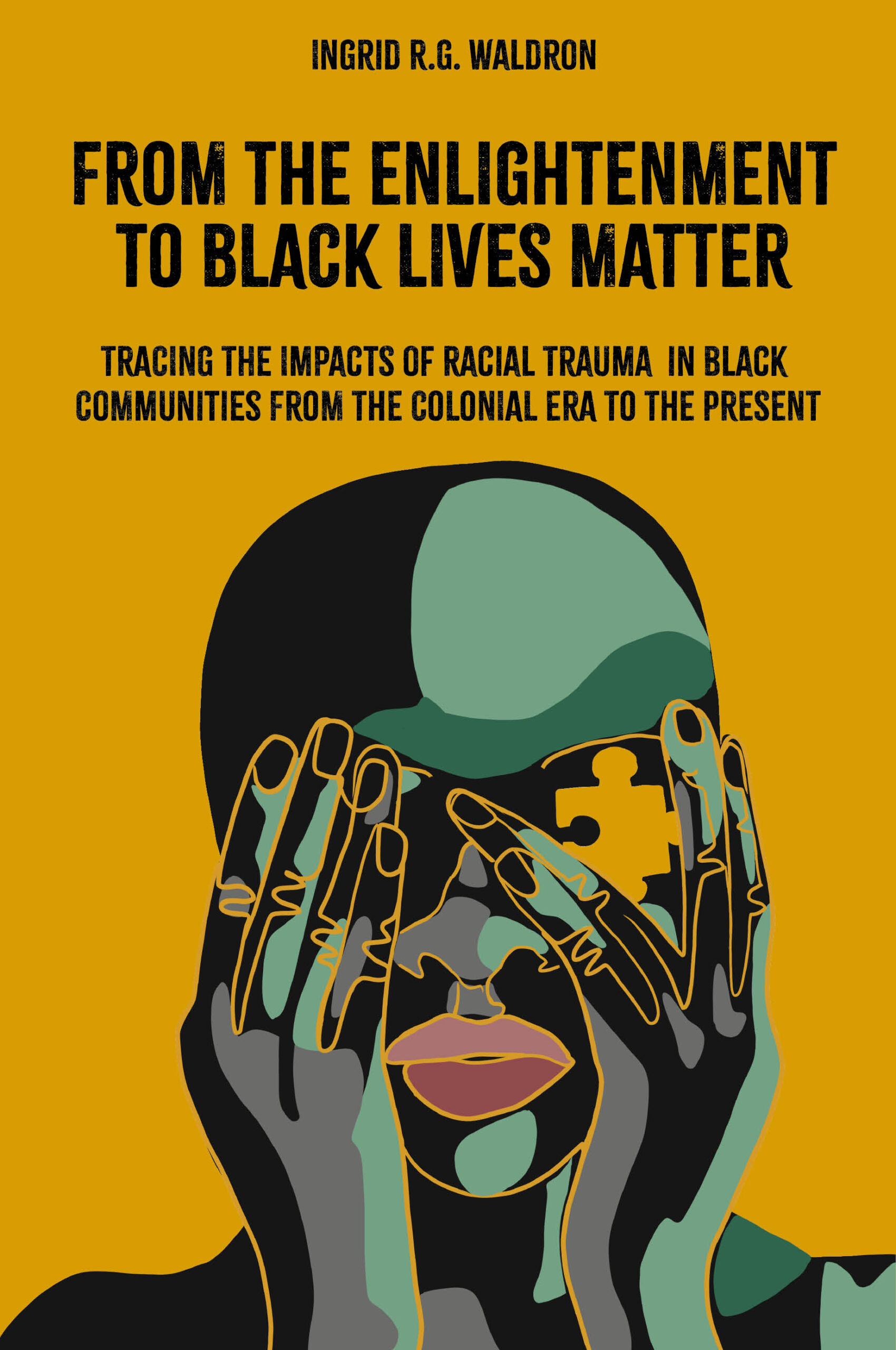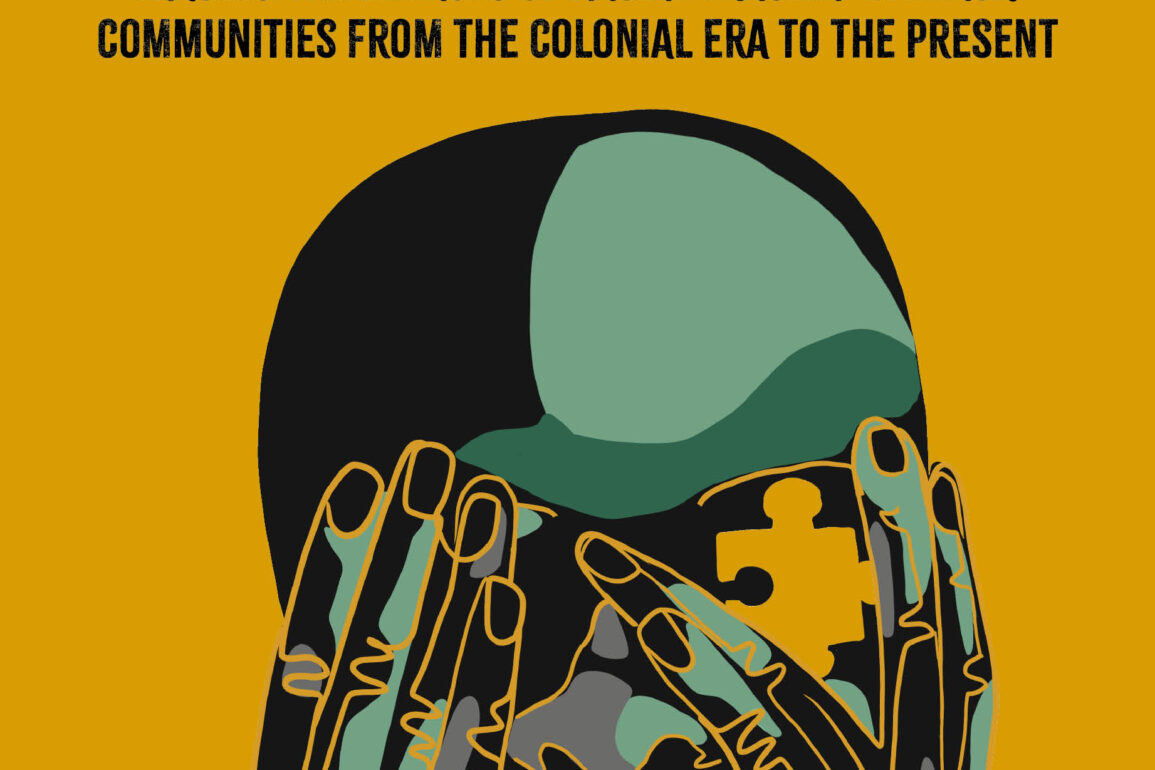Ingrid Waldron’s new book combines her findings on contemporary mental health concerns in Black communities with a historical analysis of colonialism and ongoing racial trauma.
Ingrid Waldron, the HOPE Chair in Peace and Health in McMaster’s Global Peace and Social Justice program, says her newest book is “the book I always wanted to write.”
From the Enlightenment to Black Lives Matter: Tracing the Impacts of Racial Trauma in Black Communities from the Colonial Era to the Present, which was released this week, is a wide-ranging exploration of the historical and ongoing impact of racism on the mental health of Black communities in Canada, the U.K. and the U.S.
Waldron is widely known for her work on environmental racism, including the development of Canada’s first environmental justice law, as well as the film, There’s Something in the Water, based on her book of the same name.
But in her new book, she combines her more recent research with a return to her academic roots and her first passion: The history and impact of racism on the physical and mental health of Black, Indigenous and immigrant communities.
“The historical analysis in the book, which goes back to colonial times, comes from my PhD thesis, which I never had a chance to publish but always wanted to,” Waldron explains.
More recently, Waldron has studied mental health issues in Black communities in Nova Scotia and Ontario.
“In the book, I’m able to shed light on contemporary issues around mental illness in Black communities, and integrate those with the historical issues that came out of colonialism.”
How racism affects health
 A key concept in the book is that racism is a significant structural determinant of health — one that has a very real, demonstrated impact on mental health and well-being, but historically hasn’t been taken seriously, Waldron says.
A key concept in the book is that racism is a significant structural determinant of health — one that has a very real, demonstrated impact on mental health and well-being, but historically hasn’t been taken seriously, Waldron says.
(Structural determinants of health include the policies and decision-making processes within social structures that determine a person and a community’s well-being.)
“I want mental-health clinicians and professionals to understand that racial trauma is real, and that it comes out of structural inequities that Black people face in almost every single social structure that we have, whether we’re talking about education, the criminal justice system, labour, or health care,” says Waldron.
“The practice of psychiatry rose up during slavery and colonialism and the racist ideologies that came out of that affected the ways in which mental health professionals have looked at Black and other racialized people and informed how they’re diagnosed, even today, even though it was long ago.”
Clinicians aren’t the book’s only audience. Waldron hopes funding agencies, like the Canadian Institutes of Health Research (CIHR) and the Social Sciences and Humanities Research Council (SSHRC), will benefit from her findings, as well as educators teaching health professionals.
Breaking taboos — and barriers
Waldron also hopes the general public will find value in the book — especially those in Black communities who may be dealing with mental health challenges.
“I hope part of the readership will be Black folks with mental health issues who might see themselves in what I’ve written — particularly because where I focus on my recent studies with Black youth and mental health, I present direct quotes as participants said them, in the way that they said it — and much of that will resonate with readers,” she says.
“There’s a wide array of approaches to cope with mental health issues, and I’d like readers to see all the diverse ways in which one can seek help.”
Waldron also hopes the book will break down barriers, within the health-care system and in Black communities, for Black people with mental health challenges.
“The barriers in the health system that might deter or prevent Black folks from accessing health care include the underrepresentation of people who look like them — nurses and doctors who are not Black, who don’t understand their cultural orientations, who are not culturally or structurally competent,” she explains.
“The other barrier would be within the community, and the very deep stigma and taboo around mental illness in Black communities. There is also a general belief in the Black community that seeking help for mental illness is a sign of weakness.”
The solutions to breaking down those barriers, says Waldron, is as complex as the issue itself. They include more diverse representation among policymakers, health-care workers and academics; more funding for research and community-based initiatives; and better training in cultural and structural competency.
Cultural competency focuses on understanding patients’ worldviews and traditions, and structural competency is concerned with addressing the structural determinants or “upstream factors” that lead to poor health outcomes, such as income insecurity and poverty, poor housing quality and food insecurity.
“My students often get frustrated — there are all these difficult things happening in health care, and they say it feels like nothing ever changes,” Waldron says.
“I say, things will change when the policymakers change and are more representative of a diverse community.
Things will change when professors design courses and conduct research on health disparities and racialized communities and educate students about these issues.
Things will change when health professionals are trained in the structural determinants of health and structural competency and programs and services reflect that training.“It takes a long time. It takes effort.”



